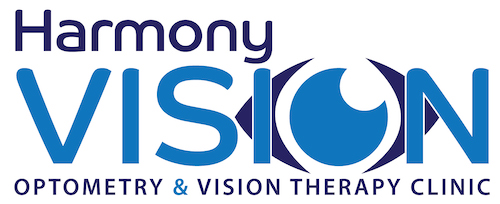Behavioural Optometry Q&A
Q What is Behavioural Optometry?
A. Behavioural Optometry is practiced by qualified optometrists, who have an interest in how the eyes work in conjunction with the whole body ie how visual behaviour interacts with everything we do.
The Rise of Digital Eyestrain and How to Avoid It
Digital devices have become part of our everyday lives. We use them for work, study, reading, playing and communicating with loved ones. For many of us, our

devices are the first things we greet in the morning and the last thing we use at night.
While there is no doubt that they have made some part of our lives easier and more convenient, they are also contributing to health issues, and one of those is digital eye strain.
What is Digital Eye Strain?
It was only a generation ago that only a small part of the population spent a lot of time reading or on a computer-like device. What was once the realm of the “geek” or bookworm, is now the norm for a much larger part of the population. Increased use of technology and digital devices means an increase in the amount of time spent relatively still while looking at near distances for long periods of time. This is not something our eyes were designed to so constantly and results in visual fatigue and eyestrain symptoms.
What are the symptoms of digital eyestrain?
Alice Forsyth Optometrist at Harmony Vision
 Introducing Alice Forsyth
Introducing Alice Forsyth
At Harmony Vision Care we are fortunate to have a team of leading optometrists who are passionate about helping our clients realise their best performance through better vision. One such member is Alice Forsyth, a behavioural optometrist who studied Optometry at UNSW and joined the Harmony Vision Care team in 2014.
In April, Alice traveled to Sydney to attend the 8th International Congress in Behavioural Optometry, along with the rest of the Harmony Vision team. Staying up to date with research and clinical practice is important to Alice, so when not cooking, spending time with her family or enjoying music, Alice enjoys reading and pursuing knowledge. To this end, she is currently studying for her Fellowship, which is a long road, and lots of hours of study!
We recently sat down with Alice for a quick question and answer session to find out why she’s so passionate about behavioural optometry and to help you get to know her a little better.
What inspired you to become a behavioural optometrist?
I was initially drawn into behavioural optometry to find more ways to help my son with his reading. Though I quickly came to appreciate the bigger picture that is vision. Over two million neurons connect the eyes to many areas of the brain (up to 60%), including input to regions that control touch, movement, attention and spatial judgment.
As optometrists, we like to pull things apart to discover how they work, but once we have that understanding we need to link the parts back together again, and there’s always a bigger picture.
What is the most rewarding part of your job?
When eye drops aren’t enough – looking for relief from dry, gritty eyes?
Looking for dry, gritty eye relief, without more eye drops?
Do you experience…
- stinging or burning eyes?
- a sandy or gritty feeling as if something is in the eye?
- episodes of excess tears?
- pain and redness of the eye?
- episodes of blurred vision?
- heavy eyelids?
- uncomfortable contact lenses?
- decreased tolerance of reading, working on the computer, or any activity that requires sustained visual attention?
- eye fatigue?
What is dry eye?
Dry eye is a condition when the eye does not produce tears properly, or when the tears are not of the correct consistency and evaporate too quickly.
Dry eye can adversely affect a person’s quality of life, due to discomfort, tearing or an inability to do things due to making symptoms worse (eg contact lens wear).
Dry eye can make it more difficult to perform some activities, such as using a computer or reading for an extended period of time, and it can make it difficult to cope in dry environments, such as the air inside an airplane.
New Treatments for Dry Eye
The first step in treating Dry eye is a thorough consultation to try and identify the correct cause. In the past, day to day relief came in the form of eye drops. These frequently help symptoms, but as soon as you stop using them, the symptoms return. Now, new treatments such as “Blephasteam” are giving longer lasting relief, without the need for additional eye drops.
How can BlephasteamTM help?
Samsung Creates App to Assist Colour Vision Deficits
Source: http://www.phonearena.com/news/New-Samsung-app-helps-color-blind-people-see-the-full-spectrum-of-colors_id90217



